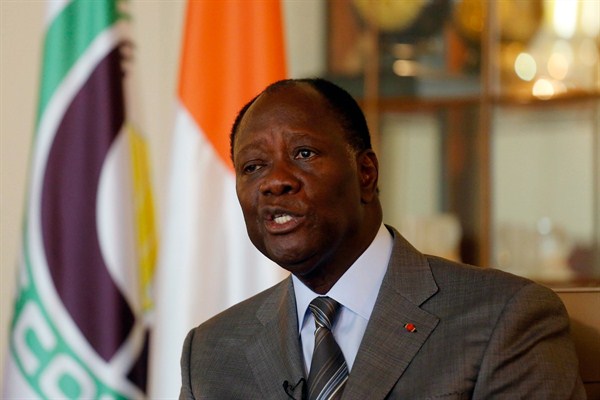Last week, Cote d’Ivoire’s parliament approved the draft of a new constitution that President Alassane Ouattara says will “turn the page” on the country’s “successive crises,” and offer a “new social pact.” That’s because the new draft makes good on his 2015 campaign promise to lift the restriction on presidential candidates with dual nationality, a deep-rooted source of social tension in a country with a large immigrant population. Ouattara himself had previously been barred from running for president, due to speculation that his father was born in Burkina Faso. Ivoirians will vote on the new charter in a national referendum on Oct. 30, which the country’s opposition forces plan to boycott.
Political instability has dogged Cote d’Ivoire for more than two decades, often driven by the question of Ivoirian nationality. Former President Henri Konan Bedie, who took office in 1993 and currently leads the Democratic Party of Cote d’Ivoire (PDCI), aggressively promoted the concept of “Ivoirite,” an interpretation of national identity that called into question the nationality of citizens of foreign origin. Divisions deepened and, in the context of economic decline, helped precipitate a military coup in 1999 that ousted Bedie.
But divisions remained entrenched. In 2000, Laurent Gbago was elected president in a controversial and tightly controlled election, shortly after the passage through a national referendum of a law requiring both parents of a presidential candidate to be born in Cote d’Ivoire. Ouattara was thus excluded, given the suspicions about his origins, deepening strains between the predominantly Muslim north, home to many poor immigrant workers from Mali and Burkina Faso, and the largely Christian south. In 2002, troops primarily from the north mutinied, launching attacks across the country and gaining control of the north. The ensuing civil war divided the country between a mainly Muslim and rebel-held north and government-controlled Christian south for several years.

